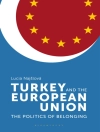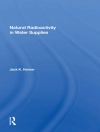The end of communist regimes in Eastern Europe and the USSR produced strikingly little enthusiasm in the United States. The political energy absorbed for forty years by American-Soviet relations left America no triumphant, but reflective, turning inward with a general sense of national decline. American politics and policy have met the rapid changes in the new global order with alarming slowness and inflexibility. In this book, fourteen leading political scientists ask two basic questions. What effect did the cold war have on American institutions and politics? And how will American politics evolve now? The first section of the volume focuses on institutions-the presidency, Congress, federalism. The second explores politics-ideologies, public opinion, and the American party system. The third section tackles important policy areas: the budget, social issues, education, foreign policy, trade, and immigration. Contributors: Joel D. Aberbach; Tobias D/u00fcrr; Andreas Falke; Adrienne H/u00e9ritier; Peter L/u00f6sche; Theodore J. Lowi; Heinz-Dieter Meyer; Demetrios G. Papademetriou; Paul E. Peterson; Bert A. Rockman; James Thurber; David B. Walker; and the editors.
Об авторе
<b>Michael Minkenberg</b> is an assistant professor at the Center for European and North American Studies, University of Gottingen.
<b>Herbert Dittgen </b>is a visiting scholar at the Center for U.S.-Mexican Studies at the University of California, San Diego.












